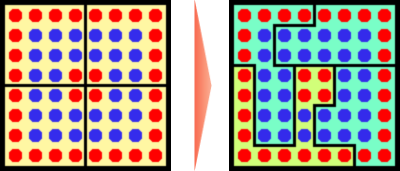Is it just me, or does this rate seem slightly insane and not in keeping with the representational form of government we are so fond of espousing? How much of a voice do we really have with our votes?
In the races I analyzed, the Democrats picked up 5 seats and the Republicans picked up 5 seats – leading to a zero net for each. Any gains or losses for both parties must have come from the other 34 races in which the incumbents decided not run for reelection. Makes sense why so many politicians seem to hang on to their positions for so long – they are almost guaranteed reelection. Not only that, but vested interests have strong incentives to give them carrots to remain in office and keep the status quo from changing.
Maybe what I’m talking about isn’t that surprising to anyone more familiar with the political scene, but I must say I’m absolutely shocked by how strong this reelection rate is. I knew it was high, but not this high. I haven’t gone back to verify that accuracy of this data yet, but will report back if I find it to be erroneous. It comes from the Federal Election Committee website, so I feel very confident it is reliable.
A quick look at the Senate seats indicates a similar pattern. In these races, 32 of 40 had incumbents running for reelection. A total of 31 out of the 32 incumbents won reelections (the other 8 races had no incumbents). That’s a 96.9% reelection rate – virtually identical to the House seats!
 The only incumbent Senator who lost in the 2004 election was Tom Daschle from South Dakota. (Daschle was beaten by John Thune by a very narrow margin – 49% vs. 50%, and only after both spent huge sums of money. Daschle was 2nd in Senate campaign expenditures after Arlen Specter (R-PA). Thune was 5th highest.)
The only incumbent Senator who lost in the 2004 election was Tom Daschle from South Dakota. (Daschle was beaten by John Thune by a very narrow margin – 49% vs. 50%, and only after both spent huge sums of money. Daschle was 2nd in Senate campaign expenditures after Arlen Specter (R-PA). Thune was 5th highest.)The best explanation I can think of for this trend is gerrymandering by incumbent politicians. Does anyone else with more political insight have any other thoughts on this? Does this reelection pattern tend to hold up in all Congressional races?
Questions: Are there any other explanations besides gerrymandering that help explain this near certainty of incumbent reelection? How badly is the data skewed because I’ve excluded races without incumbents? (Are most of them who don’t have a good chance of reelection smart enough not to run again?) Would more competitive elections be an improvement over our current situation? Why or why not? What might be some of the unintended consequences of making elections more competitive?

1 comment:
I have an idea: the views of people in a district do not change significantly every 2 or 6 years.
Post a Comment